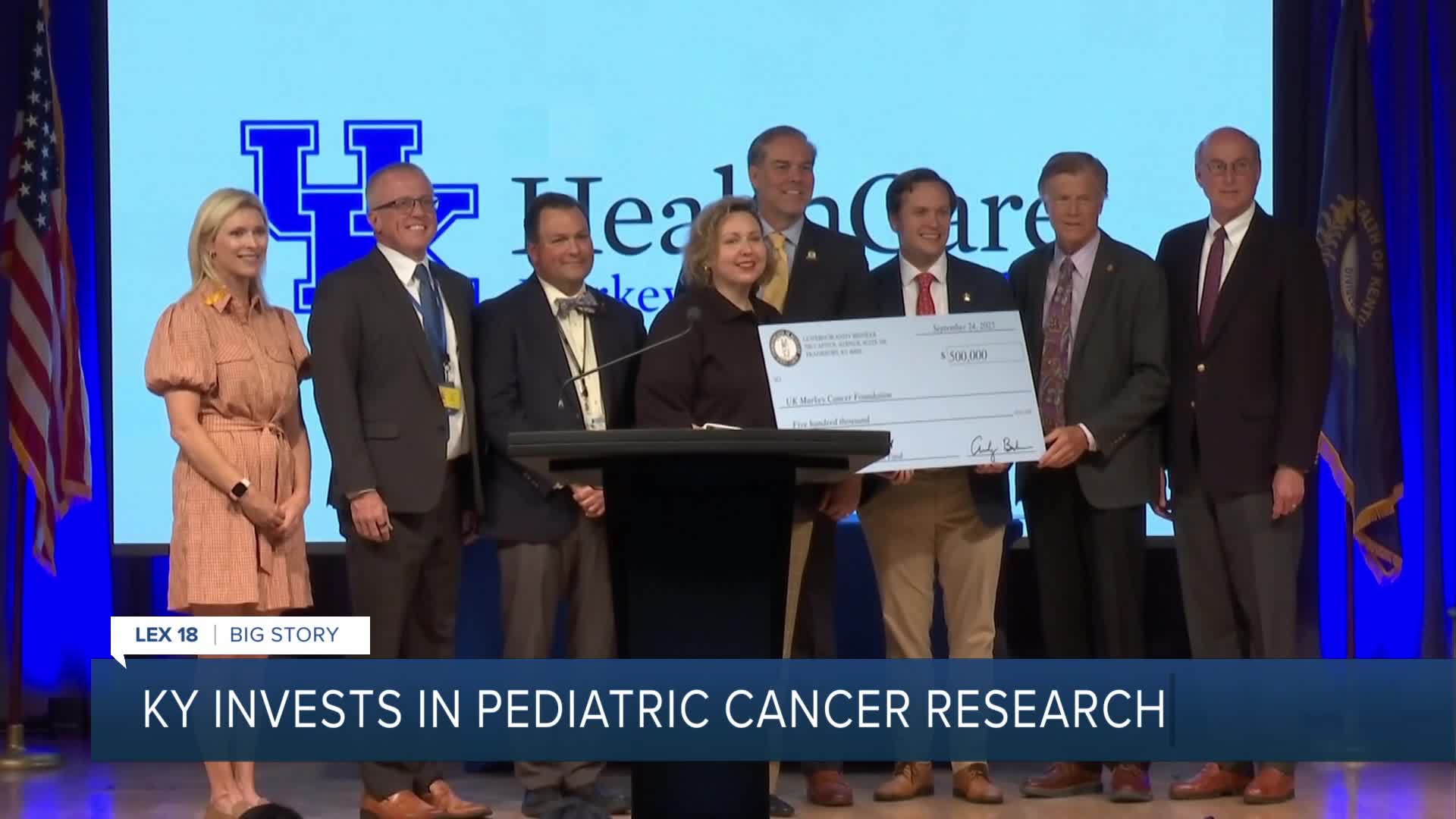LEXINGTON, Ky. (LEX 18) — Kentucky is one of only a handful of states that invests in childhood cancer research, and doctors at UK Hospital say that money is doing wonders when it comes to saving the lives of their smallest patients.
Daniel Arega is one of those little patients. He recently wrapped up his cancer treatment at the hospital and has some encouraging words for other kids currently fighting cancer.
"I told (the doctors) about how great they were and thankful for how they treated me," Arega said.
Arega's message to other kids battling cancer is to be hopeful.
"You'll eventually get out of it," he said.
There's good reason for such optimism. Kentucky, as a state, puts millions into childhood cancer research.
In 2015, lawmakers created the Kentucky Pediatric Cancer Research Trust Fund. To date, around $36.5 million has been put into the fund. This gives Kentucky researchers the ability to look into new treatments and therapies and also look into what's giving kids cancer in the first place. The fund also helps Kentucky families pay for transportation and boarding costs — the things that families shouldn't have to worry about when their child has cancer.
That trend continued on Monday, where First Lady Britainy Beshear joined doctors, state leaders, and families to present more funding and designated September as Childhood Cancer Awareness Month in Kentucky.
Daniel's dad says this money and the doctors at UK made all the difference for his son.
"The doctors here are like angels. They treated him so well and he would feel like he was coming home. They would do everything to make his experience better," Fasil Arega said.
Doctors, like the chief of pediatric cancer at Kentucky Children's Hospital, say these state dollars are more important now than ever before because the federal government has made cuts to cancer research.
"I'm just amazed that we have this resource, especially now where it has become much harder for cancer investigators to get funding to do cancer research," Dr. John D'Orazio said.





